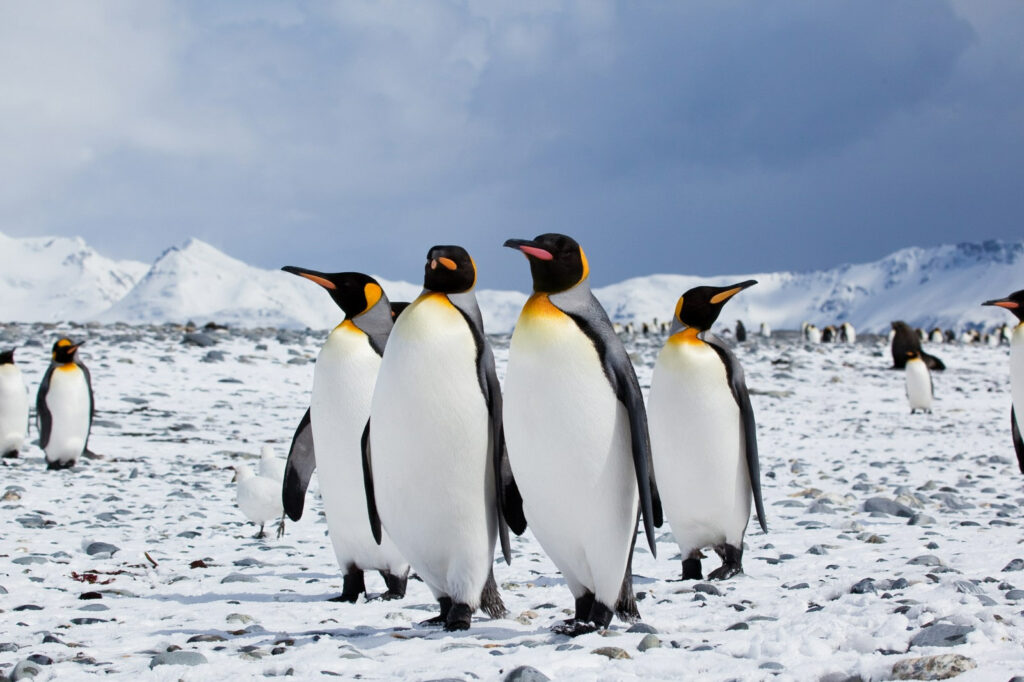Every profession has its drawbacks and difficulties. For instance when biologists go “Let’s hear it for the tapeworm! Hip hip… uh, where’d everybody go?” But in fact, the Washington Post and others tell us, a recent edition of Biological Conservation touted the “global parasite conservation plan” on the grounds that the loss of the revolting things living in a Tasmanian tiger’s gut and the lice hanging onto its fur were as bad as the loss of the tiger itself. And they are of course right; ecosystems are very complicated things and if big bits of them vanish, they tend to collapse. But is it really necessary to throw in that parasites “are subject to increasing stress from habitat loss, climate change and co-extinctions”? Apparently so. One must genuflect at the green altar. And in a ritually predictable manner. Hence for decades we’ve been told climate change will wipe out everything cute and cuddly while fostering the spread of everything nasty from rats to poison ivy to COVID-19. So as soon as we find out lice are good, kaboom, climate change must be coming for them too.
In some sense we are relieved that this attitude reflects greater consistency and logic than the Earth-will-swarm-with-horrors comic-book alarmist vision. But it still bumps up against the implausible assumption that “climate change” must threaten all good species especially without even specifying the direction or nature of the change. Indeed, all else being equal, warm and wet beats cold and dry.
At least it does if you like life. And presumably you do. So once again we must draw passing attention to the non-trivial “problem of green morality”. To speak with regret of “losing” a species implies a judgement that having it was good. But why?
Nature is not a self-evident self-grounding source of moral judgements. When a lion eats a zebra, it’s bad for the zebra but good for the lion. And its adorable cubs. And there is genuinely riveting stark beauty in an austere desert ecosystem as well as a lush rainforest. But not to nature: they are only beautiful to people. Just as there are very few people (other than C.S. Lewis’s Filostrato) who do not think on the whole that more and more varied organic life is better than less. A planet dominated by three species of insect, even if abundant and living in ecological balance, would strike most of us as repellent even if we could not say why.
Likewise in The Rise and Fall of the Dinosaurs, which we quoted last week, Steve Brusatte calls the day the asteroid hit 66 million years ago “the worst day in the history of our planet. A few hours of unimaginable violence that undid more than 150 million years of evolution and set life on a new course.” It’s hard not to sympathize… but hard to explain. Not just why is it bad that brontosaurus was swept away and brontotherium lumbered onto the stage. Why it’s bad that there were fewer species and fewer individuals. Humans think so. Nature cares not a whiff.
So why do we? It won’t do to note that some animals are useful to us. We value nature for its beauty, not just its usefulness. We value it even though nature doesn’t value itself, nor does it value us. And if we ever start to value nature so highly as to start believing we humans are no better than it, we should not be surprised if we too cease to value human life as a consequence.
The truth is, we like life. When we go on vacation, or used to, we normally go to places filled with bright colourful fish or spectacular, graceful beasts and birds. We even keep hoping to find life on other planets just because. Even if we could never get there, we’d cheer. Unless it acted too much like we humans on our frequent bad days. We like life, the more the better. And life likes warmth and water so we should too.
All that being said, it remains true that we should have some sympathy for “parasites” even though they are freeloaders and often disgusting ones and we rightly seek to exterminate many of them if they invade our homes and bodies, because without them a great many other creatures would perish directly or indirectly. But it does not remain true that “climate change” necessarily means parasites would flourish and their hosts would crumple. Nor is it true that parasites are only threatened by climate change if we decide we like them, or only the ones we decide we like. (Or that “climate change” threatens to unleash America’s hazardous waste dumps because it makes weather as well as vermin worse.)
Science doesn’t work that way. Nor does nature. Only shallow polemics.


